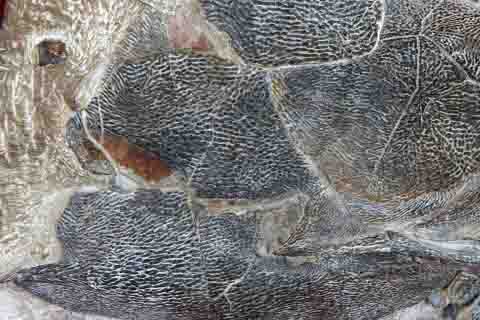Beijing: Scientists have discovered a “stunning” trove of thousands of fossils on a river bank in China.
The fossils, estimated to be about 518 million years old, are particularly unusual because the soft body tissue of many creatures, including their skin, eyes and internal organs, have been “exquisitely” well preserved, the BBC reported.
Palaeontologists have called the findings “mind-blowing” — especially because more than half of the fossils are of previously undiscovered species. The fossils, known as the Qingjiang biota, were found near Danshui river in Hubei province.
More than 20,000 specimens have been collected and 4,351 analysed so far, including worms, jellyfish, sea anemones and algae.
They will become a “very important source in the study of the early origins of creatures”, Professor Xingliang Zhang from China’s Northwest University said. He is one of the fieldwork leaders.
The discovery is particularly remarkable because “the majority of creatures are soft-bodied organisms, like jellyfish and worms, which normally stand no chance of getting fossilised”, Prof Robert Gaines, a geologist who also took part in the study, said.
The majority of fossils tend to be of hard-bodied animals, as harder substances, like bones, are more likely to fossilised.
The Qingjiang biota must have been “rapidly buried in sediment” due to a storm leading to preservation of soft tissues, he said.
Scientists are especially excited by the jellyfish and sea anemone fossils, which Prof Gaines describes as “unlike anything I have ever seen. Their sheer abundance and their diversity of forms is stunning”.
Meanwhile, palaeontologist Allison Daley, not part of the study but wrote an accompanying analysis in Science, said the find was one of the most significant in the last 100 years.
“It blew my mind — as a palaeontologist I never thought I’d get to witness the discovery of such an incredible site. For the first time we’re seeing preservation of jellyfish — [when] you think of jellyfish today, they’re so soft-bodied, so delicate, but they’re preserved unbelievably well at this site,” Daley said.
The research team is now documenting the remaining specimens and conducting more drilling in the region to find out more about the ancient local ecosystem, and the fossilisation process.
Prof Xingliang says he looks forward to studying “all these new species — I’m always excited when we get something new”.
IANS
